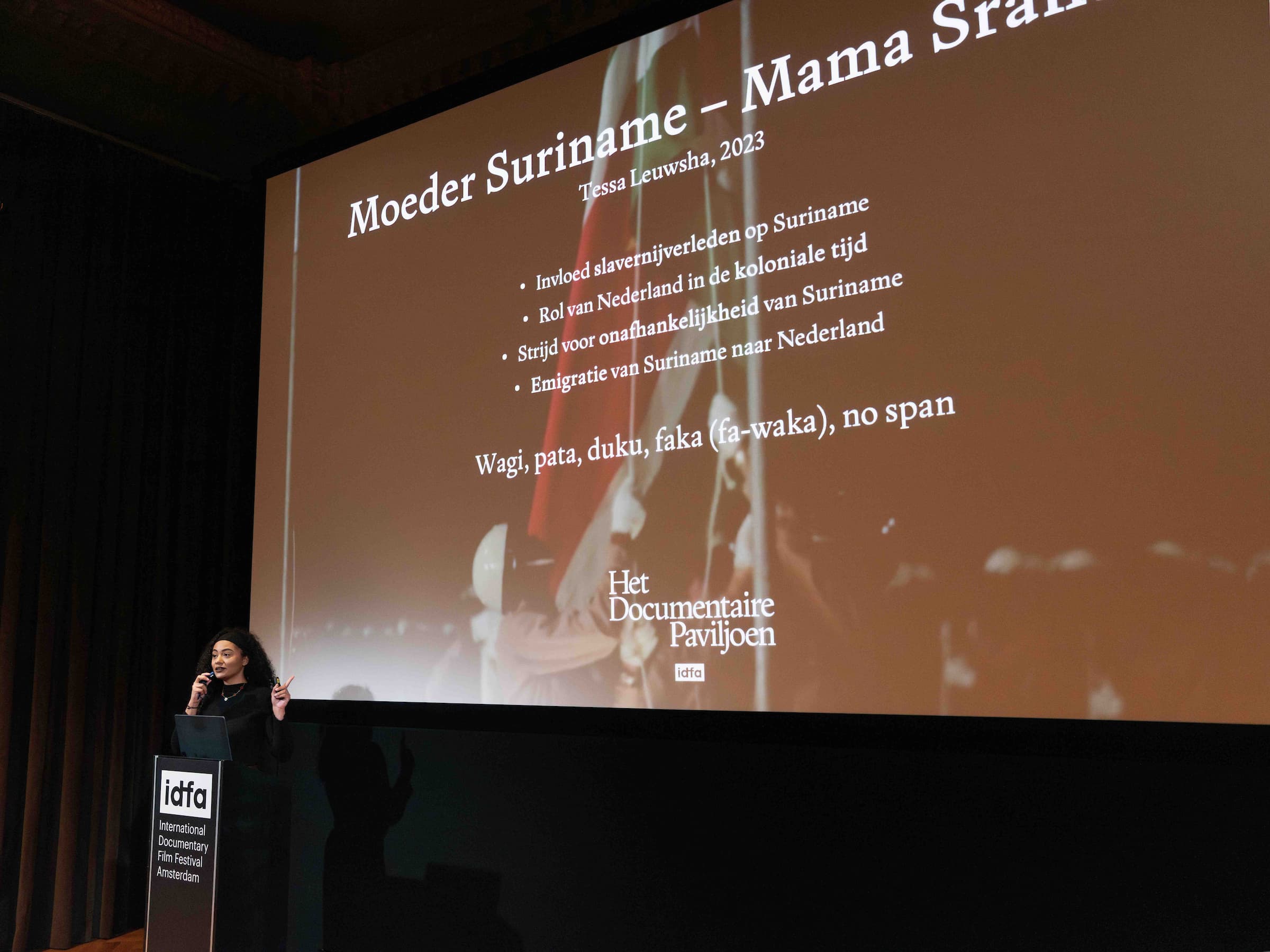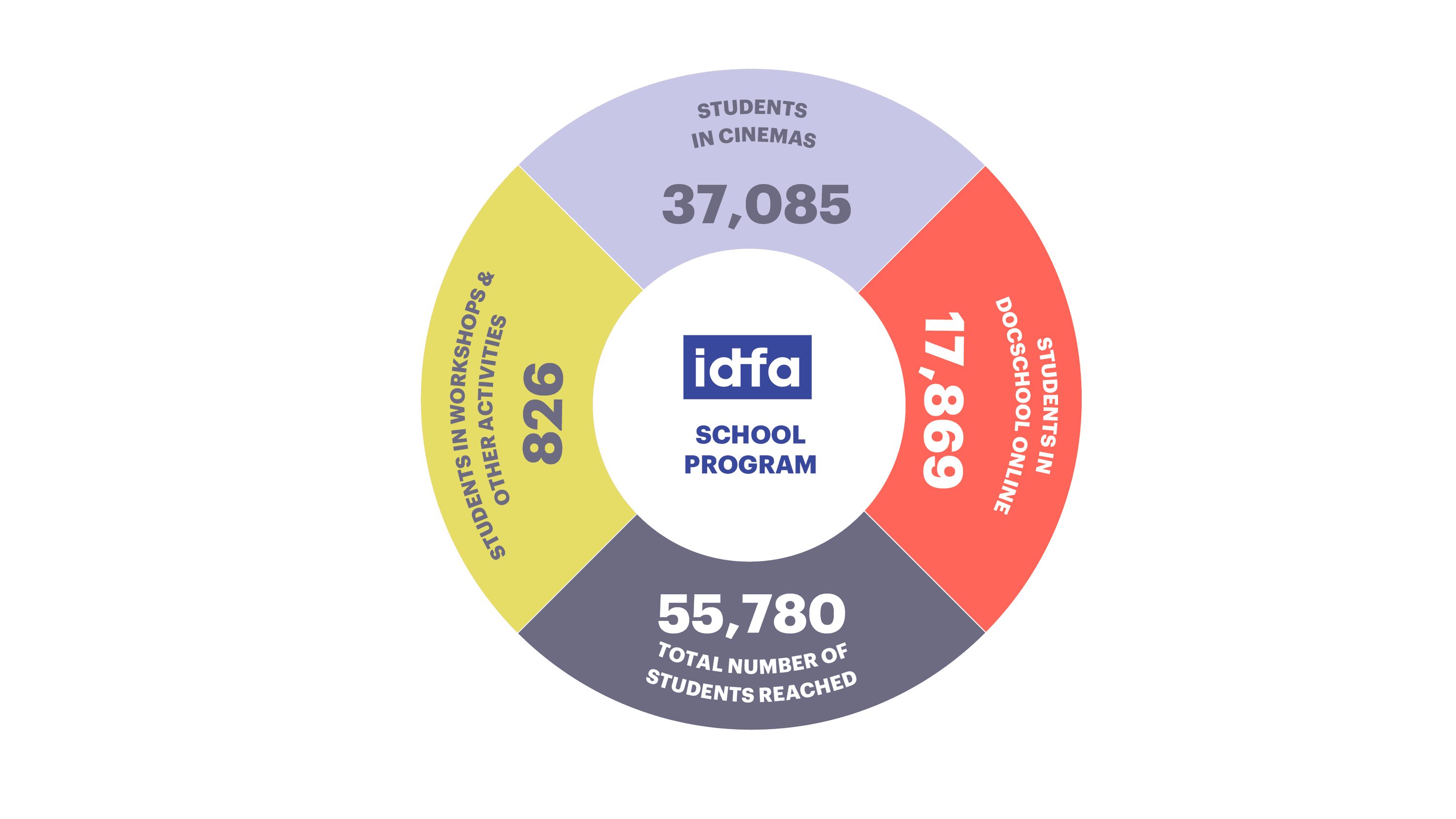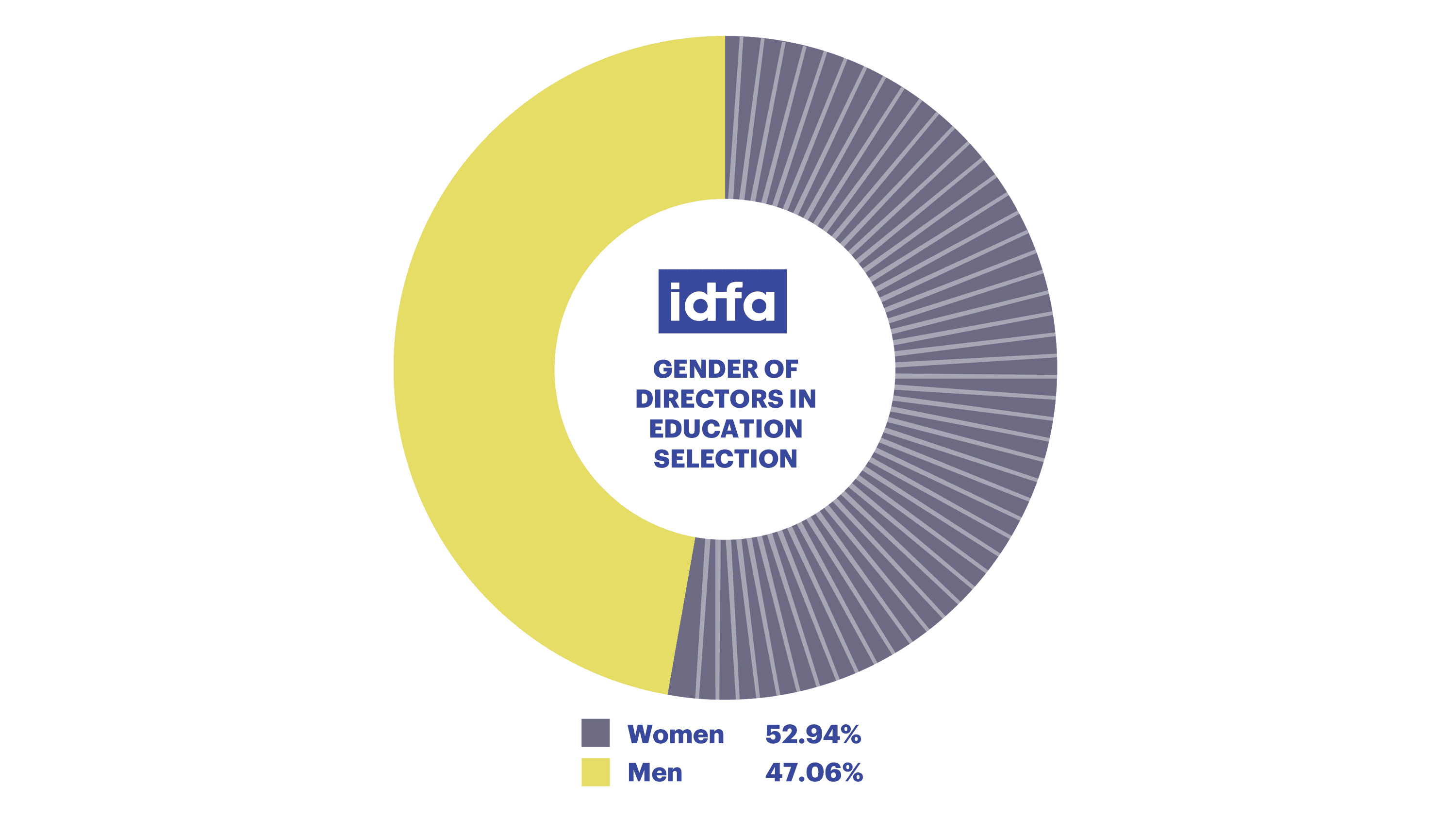Education
Education is a key pillar of IDFA’s programming. Watching documentary films can help school children and students broaden their horizons—to learn to empathize with the experiences and perspectives of others, to become active citizens, and to develop a critical understanding of film and other audiovisual media. With its education programs, IDFA aims to contribute to a media-literate society while reaching a large, new, young, and diverse audience.

School screening: Moeder Suriname (Photo: Pier van den Elsen)
IDFA’s education program saw remarkable growth in 2024. With a total reach of 55,000 school children and students—up from 50,000 in 2023 and 35,000 in 2021—IDFA’s impact in schools continues to grow. This increase was driven in part by new initiatives, including school screenings at Het Documentaire Paviljoen and collaborations such as the Children’s Book Week program through the regional Filmhubs.
These 55,000 participants took part in a range of activities:
- 2,000 attended screenings at Het Documentaire Paviljoen;
- 10,000 visited the festival;
- 18,000 watched a film through Docschool Online;
- 8,000 took part in an online film lesson through LessonUp;
- 9,000 participated in a film lesson or workshop at school;
- 8,000 attended a film screening in a theater in their region.

Expanding content and deepening engagement
Beyond expanding its reach among school children and students, IDFA also introduced new educational content, including a program centered on Mother Suriname – Mama Sranan by Tessa Leuwsha, tailored for secondary and vocational education. The film examines the shared history of Suriname and the Netherlands, explored through an interactive lesson. Based on teacher feedback, an alternative edit was developed in collaboration with Leuwsha, making the material more accessible and inviting deeper reflection and dialogue.
The program used the film as a starting point for broader discussions on history, perspective, and the importance of diverse narratives—posing key questions such as: What do we observe? What emotions and thoughts does this provoke? How do colonial power structures persist today? Launched in the fall, the lesson was offered during the festival as an ongoing program at Het Documentaire Paviljoen.
One teacher captured the essence of this approach: “Textbooks teach the definitions of words like colonialism and independence; this documentary shows what they mean in real life.”
Deeper discussions through professional moderation
For several years, IDFA has invested in professionalizing the moderators who lead the film programs. With additional funding, we were able to invite experienced moderators to participate, who were more equipped to cater to the student’s ages and backgrounds. The resulted in more meaningful, well-matched discussions—both at the festival and at Het Documentaire Paviljoen—where moderators created a safe space for reflection and dialogue.
Their involvement also allowed for a higher level of film education. Previously, much of the lesson material was designed for classroom use, but time constraints often prevented teachers from using it. To address this, parts of the material were adapted into an interactive, on-screen presentation, ensuring more students could fully engage with the program.
A new film discussion method was also integrated, inspired by Visual Thinking Strategies (VTS) and further developed Netwerk Filmeducatie into a practical tool for post-screening conversations. Using open-ended discovery questions—focused on observation, listening, emotions, and thoughts, rather than predefined “correct” answers—students were encouraged to collectively develop interpretations and insights. This added a deeper layer of reflection to the screenings.
These steps have strengthened IDFA’s educational programming, earning high praise from educators. Teachers rated the festival’s education program an 8.8 out of 10, a notable increase from 8.4 in 2023.

IDFA's education program is supported by Fonds 21, Brook Foundation, Deloitte Impact Foundation, IDFA’s Special Friends+ and Patrons.
